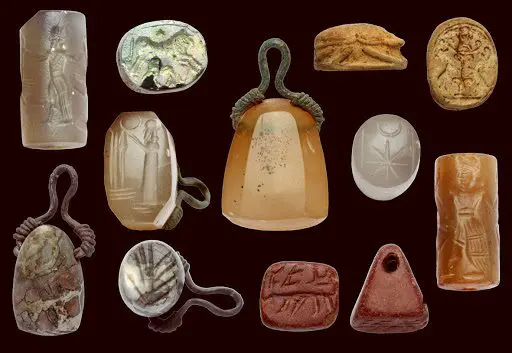In ancient times, international trade flourished. In Mesopotamia during the Neo-Babylonian (Chaldean) kingdom (626-539 BC), trade pervaded everywhere. Large merchants and moneylenders unite and create a kind of offices or trading houses. The larger ones are able to control economic life. In trade and usury, in the “banking” business, Jews resettled by Nebuchadnezzar were also included. In the Bible we have evidence of an increase in the number of people suffering from social injustice, as luxury and excess are accompanied by misery among the masses: silver and gold are piled up (Isa. 2: 7), deception and speculation are spreading (Hosea 12: 8; Mich. 2: 1ff .; Am. 8: 5), houses decorated with ivory are built (Am. 3:15), the wives of the rich are adorned with earrings, necklaces, bracelets (Isa. 3: 17-24) , house after house is added, level after level, so that in the words of the prophet “they leave no room for others”, as if only they were settled on the earth (Isa. 5: 8).
The ancient big business tycoons had different categories of credit cards. These cards have played a vital role in various areas of application, such as gold card, silver card, platinum card. Cards with a relatively lower category such as, e.g. bronze, ivory and nickel were also a symbol of its status. All this reminds us of a world trade organization with its corresponding socio-economic structure and base.
This hypothesis is based on the analysis of certain seals with special characteristics. These seals have a number of common features, although they come from different parts of the world. Their homogeneous nature and universal role provoke experts to focus their opinions on the claim that their preparation and distribution was the responsibility of a controlling institution, which is due to the uniformity in their formation in every corner of the ancient world. Their commercial value and similarity, as well as their archaeological discovery in various parts of the world, support this theory.
Experts believe that such an organized body – a trade union – can be built on the basis of religion, as evidenced by the close links between merchants and the temples or monasteries that ensured the trade monopoly. This was a situation of mutually beneficial cooperation and interest of the state and the church. International trade, even when in transit, is a source of revenue for the royal treasury (as evidenced in the Old Testament books of 1 Kings 10:15; 1 Ezra 4:20). It is also a royal monopoly, dating back to the 3rd millennium BC. the Mesopotamian kings had their own trade caravans. A number of kings entered into contracts with large merchants for part of the profits (Babylon, Cyprus, Ugarit), and there was a group of “royal merchants” who carried out diplomatic orders.
In this context, experts accurately identify these stamps as the credit cards of man from antiquity and his trade. Their meaning was threefold: first, it was affirmative; second, they represented a kind of document; third, they were used as monetary means. After crossing dangerous roads and obstacles such as skirmishes with pirates and robbers, sales representatives showed each other their seals. This was considered a gesture of welcome and revealed the identities of both parties. Subsequently, these stamps were used as a means of authentication upon receipt of goods, a custom that is still preserved in the Middle East today. They were also given to traders as a token for the promised amount due for a transaction.
The seals were made mainly of precious and semi-precious stones. How exactly do minerals affect our body?
There are many controversies and opinions on this issue, but none of these opinions can completely deny their impact. The living organism (man) and the crystals (precious stones) are self-organizing systems, there are many similarities between them: the most important of them is that they react to external influences. Organisms receive energy from outside and transform it. Crystals also convert heat energy into electricity / tourmaline /, light – into coherent rays – a source of laser / ruby /. Crystals constantly interact with the environment and send information. Ah, is there an information exchange between the crystal and man? Yes! And this is established through the phenomenon of biolocation / radioaesthesia /. Over 90% of people have biolocation abilities. Under strong pressure, the minerals from which the precious stones are made, emit an electric charge, and at not very high temperatures – and radiation; these are physical processes, and according to the experience of healers, the positive effect of crystals on humans is due to both these processes and their main mineral components. Gemstones are perceived as carriers of electromagnetic energy, which directly affects the processes in the body. Crystals create a balance of ions in the body and immediately around it, emit light frequencies and thus affect our body. Esoteric alternative medicine claims that gemstones interact with the body’s energy field through lasting contact with the skin. The importance of their color is added to the esoteric therapy with precious stones. It is perceived as the frequency of light, which directly affects the endocrine glands and biochemical processes in the body. At the same time, the colors, which are also the result of chemical processes, are attributed a reflex effect on the chemical metabolism in the body, and hence on the emotional states.







